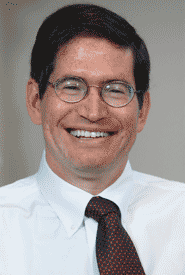Kirkland and Ellis Professor of Law Michael J. Klarman has published an essay titled “Has the Supreme Court Been More a Friend or Foe to African Americans?” in a recent volume of Daedalus, the Journal of the American Academy of Arts and Sciences. The volume brings together 22 distinguished social scientists to examine “Race, Inequality & Culture” through issues such as education, family support, racial identity, politics, employment, immigration, and the influence of hip-hop.
Klarman, the author of “From Jim Crow to Civil Rights: The Supreme Court and the Struggle for Racial Equality” (Oxford University Press, 2004), argues against conventional wisdom which, he says, tends to exaggerate the importance of the Supreme Court’s contribution to racial progress.
He begins his essay with a look at the 1954 Brown v. Board decision. He writes that the ruling would not have been possible “without the tremendous impetus for progressive racial change provided by World War II,” such as the war’s anti-Fascist ideology, the battlefield contributions of African-American soldiers, the growing political power of blacks that resulted from their mass migration from the rural South to the urban North, and the Cold War imperative for racial change that followed the War. Thus Klarman concludes that the “Supreme Court mirrors society at least as much as it shapes it.”
Klarman, who was inducted into the American Academy of Arts and Sciences in 2009, delivered an address on the Court and race at the AAAS in 2010. Listen to an audio recording of his remarks here.
The American Academy published two issues of Daedalus on “The Negro American” nearly 50 years ago at the height of the civil rights movement, aiming to examine the implications of mid-20th-century racial liberalism in the United States. Prior to this latest volume, released in April, the Academy published “Race in the Age of Obama” in January 2011, which featured essays by 14 leading humanists.
“With the presidency of Barack Obama and the subsequent national conversation about a new, post-racial America, it is the right time to examine both real and perceived changes in the racial divide since the 1960s,” said Academy President Leslie Berlowitz.
Klarman joined the Harvard Law School faculty in 2008. An expert in constitutional law and history with a particular focus on race, he is the author of several books and over 30 articles, including “From Jim Crow to Civil Rights,” which won the Bancroft Prize in 2005, widely considered to be the most prestigious award in American history writing. His most recent book is “Unfinished Business: Racial Equality in American History,” which was published in 2007.
Klarman’s scholarly work and teaching has garnered him several awards, including the first Roger and Madeleine Traynor Faculty Achievement Award for Excellence in Legal Scholarship given by Virginia Law, the University of Virginia Harrison Achievement Award, the State Council of Higher Education Faculty Award, and the All-University Teaching Award, one of the University’s highest honors for excellence in teaching, research, and service.
